In just forty-seven seconds, an unidentified individual clad in black was captured by a home surveillance camera in Baghdad's Zayouna area on the night of April 26, 2024. This brief encounter marked the tragic end of content creator Ghofran Mahdi Suwaidi’s life, better known as "Umm Fahad." The incident followed days of Iraqi authorities uncovering an electronic extortion network, allegedly involving senior officers and prominent content creators.
The assailant, armed, dismounted from his motorcycle near the victim's residence, proceeding calmly towards her recently parked vehicle. With chilling composure, he effortlessly accessed the front door, firing four shots that tragically claimed her life. Swiftly retreating to his awaiting bike, he vanished into the night, his identity concealed beneath a black helmet.
The murder triggered a flurry of speculation regarding the elusive perpetrator, who managed to evade capture despite the abundance of surveillance cameras in the crime-plagued neighborhood, touted as a security bastion.
Inquiries swirled about the possible motives behind the crime, particularly following Umm Fahad's earlier revelations in a video linking content creators to high-ranking officers within a system endorsing a controversial ideology and challenging societal norms.
In mid-March, Brigadier General Yahya Rasool, spokesperson for the Commander-in-Chief of the Armed Forces, revealed the discovery of a clandestine network operating within the security apparatus.
This network utilized social media platforms and anonymous profiles to "blackmail and defame symbols of the security establishment, as well as extort officers and personnel.”
On March 16, Umm Fahad released a video accusing fellow content creator Dalia Na'im, of being romantically involved with a high-ranking officer in the Interior Ministry, and claimed to possess evidence to support her allegations.
The murder came in the wake of a string of attacks on activists via social media, where they were accused by political or religious figures, or their associates, of violating societal morals.
Some faced legal consequences, like Umm Fahad, who received a six-month sentence in 2023 for "sharing multiple films and videos featuring explicit and indecent content, disseminated to the public through social media."
The day following the murder, Parliament approved the initial amendment to Law No. (8) of 1988, "Combating Prostitution and Sexual Deviance," as proposed by the Legal Committee. The session saw the participation of 170 deputies out of the total 325, forming the quorum.
The law comprises 12 articles, beginning with a definition of terms including prostitution, sexual deviance, effeminacy, pimping, and brothels, while the final article introduces definitions appearing for the first time in Iraqi legislation. Penalties outlined in the law range from fines to imprisonment, with convicted individuals facing possible removal from their employment or public service roles.
The legislation coincided with a major security operation led by the Ministry of Interior, touted as the largest in Baghdad, focusing on the Batawin area. The operation led to the apprehension of 600 individuals suspected of involvement in crimes related to prostitution, drug trafficking, and human trafficking. Preceding this, a separate crackdown occurred in Baghdad's Rusafa area, resulting in the closure of 460 nightclubs and venues, as reported by the police.
On February 8, 2023, the Iraqi Judiciary Council initiated a crackdown on explicit content circulating on social media platforms. Concurrently, the Ministry of Interior introduced the "Belgha" platform to enable citizens to report objectionable content. Subsequently, numerous bloggers were arrested, convicted, and incarcerated. Intriguingly, some figures spearheading the anti-obscenity campaign were later implicated in overseeing the extortion network unveiled by the Iraqi government.
In that same year, the Federal Court issued a provincial ruling to block "pornographic and offensive websites that violate religious, moral, and societal values," as outlined in the decision.
Civil activists and legal experts contend that all these laws, measures, and campaigns are purely propagandistic and have failed, and will continue to fail, to materialize in reality. They argue that they are merely utilized as tools to target political adversaries. They assert that neither will sexual deviancy come to an end, nor will prostitution decrease, nor will alcohol consumption cease as a result of these efforts.
"After over a year of cracking down on explicit content, has the quality of content improved,” activist Shwan Ali sarcastically questioned. “Or have the creators of said content become pawns in the hands of certain power factions, utilized to undermine their rivals or distract attention from the nation's pressing issues such as organized corruption, drug trafficking, crime, and impunity?”
"Where are the urgent state priorities such as enhancing the legal framework and institution-building? Where is the government's agenda that prioritized enacting amnesty laws, oil and gas regulations, establishing a federal constitutional court, a federal council, and other pledges to pursue high-profile corrupt individuals who remain at large despite revelations of their billion-dollar embezzlements?"
In the meantime, Montadhir Nasser, the editor-in-chief of "Al-Alam Al-Jadid" newspaper, viewed the implementation of the Prostitution and Sexual Deviance Law as a component of the propaganda and political rivalry between the two Shiite factions, namely the Coordination Framework Forces and the Sadrist Movement. He highlights that this move follows closely on the heels of efforts by the Sadrist movement to commemorate the Ghadir holiday.
He also observed that the law contains numerous "legal, scientific, and linguistic loopholes and vague phrases, characterized by populist rhetoric."
He stressed the impossibility of completely prohibiting gender transition surgeries, noting, "some cases are necessary, especially when accompanied by congenital deformities."
Iraqi lawmakers are urged to refrain from hastily passing laws without thorough examination, asserting, "legislators should be aware that Tehran is the primary hub for gender transition surgeries, prompting them to reconsider their rash decisions,” he added.
Iraqis characterize the recent laws and initiatives as a "modern-day religious crusade," drawing parallels to similar actions undertaken by former regime leader Saddam Hussein in the 1990s to quell public discontent amid worsening economic conditions resulting from sanctions. They argue that these measures primarily aim to curtail personal freedoms while shielding politicians, their parties, and officials from criticism.
While some view these actions as essential measures to safeguard values and moral principles within Iraq's conservative and religious society, amid increasing globalization and what they perceive as the encroachment of 'Western culture'.
Meanwhile, there has been a growing chorus of international voices condemning the legislative actions and governmental measures, expressing concerns that they will jeopardize human rights and fundamental freedoms, thereby impacting the stability and security of the country.
The law amendment
The amendment to the Law on Prostitution and Sexual Deviance was rationalized, asserting that it was "in accordance with human nature and the natural order ordained by the Almighty, which dictates that humans are either male or female, and aimed to safeguard the fabric of Iraqi society from moral decline and the proliferation of sexual deviance that has gripped the world. Given the lack of deterrent penalties in Iraqi legislation for sexual deviance and its proponents, this law was enacted."
The law imposes penalties ranging from fines to a maximum of fifteen years' imprisonment, targeting individuals involved in various aspects of the sex trade, including brothel procurers, sex workers, those engaging in sex work, individuals involved in "sexual deviance”, individuals undergoing sex reassignment surgeries, and those aiding them in such activities.
Legal expert Rakan Ghazi underscored the alterations brought about by the new law in contrast to Law No. (8) of 1988, which targeted Prostitution and Sexual Deviance.
"The death penalty has been replaced with a maximum sentence of fifteen years, and the requirement of receiving payment for engaging in prostitution, or adultery, has been eliminated without specifying the means or method of proving the incident of adultery,” Ghazi said. "Furthermore, terms absent in the previous law, such as sexual deviance, effeminacy, pimping, and brothels, have been incorporated."
Moreover, the law classifies offenses related to prostitution, sexual deviance, sex reassignment, and their advocacy as crimes against honor, which may result in dismissal or isolation for convicted employees or public servants.
Additionally, the death penalty has been mitigated for offenses such as "exploiting a person for prostitution and sexual deviance... if the victim is under eighteen years old, capped at a maximum of fifteen years."
"The death penalty for both pimps and sex workers has now been revised to a prison term ranging from 7 to 10 years,” Ghazi said, citing the previous death penalty set by the Revolutionary Command Council's Decision No. (234) of 2001 concerning pimping, which the new law has replaced with a prison sentence not exceeding seven years, coupled with a fine ranging from 5 million to 10 million Iraqi dinars, equivalent to approximately $3,790 to $7,580.
Lawyer Mohammed Ahmed Younis contends that there are no justifications for enacting the law as a standalone entity from a legal and judicial standpoint. He argues that the amendments could have been integrated into the existing law or included in Penal Code No. 111 of 1969.
He offered an example, saying, "definitions and penalties for effeminacy, sexual deviance, and gender change could have been included in the Penal Code, particularly given their connection to prostitution, which undermines honor."
Consequently, he viewed it simply as "a political maneuver orchestrated by pro-Iranian factions in what is purportedly a showdown with the West, especially considering the repeated reservations and objections voiced by Western nations in the months leading up to its enactment."
He highlighted a press conference convened by several deputies representing Shiite religious factions and parties immediately following the passage of the law on April 27, 2024.
During the conference, Deputy Hassan Saleh declared that the enactment of the Anti-Prostitution Law signified "a triumph for Islam, values, and the Iraqi people, a triumph for modesty and integrity, and a triumph for religious authority. It is a setback for the 'great evil,' who aimed to proliferate deviance within Iraqi society, a society characterized by its resilience, morality, and principles, a society embodying the spirit of Ali and Hussein." In Iranian and pro-Shiite Iraqi rhetoric, the term "great evil" typically refers to the United States of America.
A rights activist specializing in freedoms, who preferred to remain anonymous due to concerns about potential reprisals amid the ongoing crackdown on objectionable content, asserted that the law is ambiguous.
"Numerous individuals could find themselves accused and prosecuted under its provisions, even if they don't exhibit the attributes supposedly outlined within it," the activist elaborated.
"Consider the term 'effeminacy,' for instance. What exactly does the law define it as? Does it refer to individuals with masculine physical traits but feminine vocal tones and mannerisms, or does it encompass those who wear bracelets, grow long hair, or use makeup, leading others to perceive them as effeminate? In certain tribes and regions, the label 'effeminate' is applied to anyone who doesn't grow facial hair!"
He further questions, "what if an individual naturally exhibits feminine traits? They could face imprisonment for one to three years and fines ranging from five to ten million dinars, as outlined in the law, despite not having committed any actual offense. What standards will be used, and who determines whether someone is deemed effeminate? Moreover, why does the law not address females who present themselves in a masculine manner?"
Regarding the offense of wife swapping outlined in the initial article within the sexual deviance definition, the law does not clarify who will be held responsible: the husband, the wife, or both. Does it leave this determination to the judge's discretion, depending on the particulars of each case?
Approval and rejection
According to a knowledgeable parliamentary source, the author of the report discovered that the Legislative Committee had chosen to preserve the death penalty as outlined in Law No. 8 of 1988, established during the tenure of the former Iraqi regime, without making any alterations.
This determination was evident during the initial reading of the bill in Session No. 10, convened on August 15, 2023. However, international pressures and interventions by the United Nations in February 2024 resulted in its reduction to a maximum penalty of fifteen years.
In light of international pressures, MP Raed al-Maliki acknowledged that the vote on the law was initially scheduled for mid-April 2024 but was deferred by the Council until the 27th of the same month. This delay was attributed to Prime Minister Mohammed Shia' al-Sudani's visit to Washington, aimed at preventing the legislation from impacting his diplomatic engagement.
While neither the Prime Minister's Office nor the Presidency offered comments on the enactment of the new law, as has been the case with some other legislations, parliament members hastened to endorse the parliamentary process by passing the law.
Acting Speaker of the Council, Mohsen al-Mandalawi, asserted that it serves the greater good of safeguarding societal values "and furnishing legislative protection to discourage trends toward moral decay, sexual deviancy, and rectifying shortcomings in relevant legislation." He further declared, "There is no room for homosexuality in the land of prophets, revered imams, and righteous saints."
Nevertheless, certain deputies, who conversed with the author of the report, criticized the enactment of the law, suggesting that the parliament, incapable of resolving the nation's challenges and tackling pressing issues, "is resorting to mere publicity stunts."
An MP, speaking on condition of anonymity, asserted that enforcing the law would be practically unfeasible and that "individuals seeking sexual services will not cease their activities but will instead operate more discreetly, potentially driving prostitution into residential neighborhoods, exacerbating the proliferation of sexually transmitted diseases, and deterring patients from seeking medical treatment due to fear of prosecution."
The United Nations, represented by the spokesperson for the Office of the High Commissioner for Human Rights, Ravina Shamdasani, voiced apprehension regarding the Iraqi Parliament's endorsement "of a law that criminalizes consensual same-sex relationships and other forms of consensual conduct, subjecting individuals to imprisonment for up to 15 years."
Shamdasani urged for the revocation of the law, citing its contradiction with numerous human rights treaties and agreements ratified by Iraq, particularly the International Covenant on Civil and Political Rights.
She highlighted that this legislation "subjects individuals to hate crimes, police misconduct, harassment, intimidation, torture, institutionalized discrimination, and denial of access to essential services, including healthcare and housing."
The United States also conveyed apprehension regarding the enactment of the law, as articulated in a statement issued by its State Department, deeming it a menace to human rights and constitutionally safeguarded fundamental freedoms.
In a parallel message, the US Ambassador to Iraq, Alina Romanowski, echoed these sentiments in a tweet. Subsequently, 61 members of the Iraqi Parliament lodged a petition with the Acting Speaker of the Council, urging him to formally relay to the Ministry of Foreign Affairs a request to designate the US Ambassador as persona non grata, and calling upon the US State Department to recall her and appoint a replacement.
In their petition, they cited that Romanowski, by means of her tweet, had ventured beyond her diplomatic responsibilities, intervened in the domestic affairs of the nation, and overtly "criticized" the endeavors of the Iraqi Parliament, as well as intruded upon "the enactment of a law perceived to uphold the principles, values, and morals of Iraqi households."
Islamic parties within the government voiced their opposition to what they labeled as foreign interference in Iraq's affairs, including the Islamic Dawa Party, which released a statement denouncing what it termed as "the comments made by Western ambassadors regarding the passing of a law criminalizing immoral behaviors that distort human values...."
In a statement, the Dawa Party expressed its backing for the lawmakers who endorsed the law and echoed the rallying cry "no room for homosexuality in the Iraq of prophets, revered imams, and righteous saints," as outlined in the statement.
Social affairs researcher Yasser Hashem rebuffs the notion of enacting laws aimed at curbing societal issues or phenomena, fearing that such prohibitions could inadvertently exacerbate them.
"Banning alcohol in public spaces didn't curb its consumption but merely relocated it to households, exposing children and adolescents to its presence and even fostering its use,” he said. “Additionally, it likely contributed to the rise in drug abuse or served as a catalyst for its escalation."
Yasser voiced apprehension that the criminalization of "adultery and other behaviors deemed unethical by Iraqi society" could inadvertently fuel unintended outcomes, such as a rise in instances of incestuous relationships. He pointed fingers at Shiite parties self-identifying as "religious," alleging their involvement in fostering "sexual deviance, effeminacy, and the proliferation of prostitution and brothels."
"Iraqi youth often face repression as their interactions with the opposite sex are confined to familial ties with mothers, sisters, and other female relatives,” he said. “Restrictions on mingling with girls during childhood or at school sometimes prompt experimentation with same-sex relationships as a means to explore masculinity, and similarly, with females resorting to homosexuality."
A new religious campaign
Amidst the varied responses to the enactment of the law, there is a sentiment among some in Iraq suggesting that the dominant Islamic Shiite factions, wielding significant influence in the Iraqi parliament and government, are advocating for legislation and directives reminiscent of those seen during certain periods of the former Iraqi regime.
Adel Kamal suggested that many laws passed by the parliament, as well as decisions issued by the government or the judiciary in the post-war years against ISIS, were ostensibly driven by religious motives. These laws and decisions often contradicted international agreements and treaties signed by Iraq, significantly impacting its foreign relations.
Elaborating on the term "ostensibly religiously motivated," he pointed to Saddam's regime conducting executions and targeting sex workers in the 1990s under the guise of a religious crusade. However, in reality, "senior army officers and internal security forces often frequented brothels and disclosed sensitive information there."
"In a similar vein, during the current regime, authorities initiated a crackdown on indecent content, ostensibly to safeguard societal values. However, the underlying objective was to silence critics of the regime in both traditional media and social platforms, and to leverage content creators for purposes of coercion and intimidation," Adel explained, further noting, "moreover, with regards to the alcohol prohibition, it eventually transpired that the real aim was to hike prices and furnish influential factions with control over its trade."
He also highlighted the Federal Court's ruling in case No. 325 of 2023, which mandated both the Minister of Communications and the head of the Media and Communications Commission to cease and block all pornographic websites across Iraq, alongside their regular duties.
"The Ministry of Communications and the Media and Communications Commission lack the authority to compel social media companies to block pornographic content,” he said. “Moreover, no entity can completely eradicate activities like prostitution, sexual deviance, wife swapping, sodomy, or the consumption of alcohol."
He perceived this as "a squandering of laws and decisions for political propaganda by religious authority parties. They seize every chance to present themselves as righteous and powerful, masking the corruption plaguing the country.”
Lawyer H. al-Ghazi concurs with the earlier assessment regarding the endeavor of religious parties to impose their mandates on all societal sectors. However, he casts doubt on the feasibility of enforcing the recent law, particularly in certain situations like adultery.
"Proving such incidents typically demands evidence that is challenging to acquire due to the clandestine nature of such relationships," he explained.
The lawyer critiques the executive authority for its failure to implement laws, which he claims are either not fully enforced or selectively applied. He questions, "If the Penal Code and Law No. 88 on prostitution are rigorously enforced, both of which are stricter and more deterrent, then why introduce a new law on prostitution and sexual deviance? The same applies to other laws such as drug control and others."
Shamal T, a 53-year-old educational employee from Baghdad, recalls a popular saying, "Everything forbidden is desired."
He recounts how his father's strict control during his youth, aimed at deterring him from smoking, ironically led him to pick up the habit. "The moment I found a chance to be alone outside the house during my teenage years, I reached for a cigarette, and that marked the beginning of my smoking addiction."
He adds that "imprisoning sex workers is not a solution to the problem. Previous Iraqi governments, even in past regimes, were aware of specific areas for prostitution, like Baghdad's Kamaliyah area and Sahaji in Nineveh. These were under the supervision of relevant authorities, and it didn't erode societal values and morals. Those inclined to engage in paid or unpaid sex will not be deterred by prostitution laws, which, in my view, will remain mere ink on paper."
Shamal urged legislative and governmental bodies to adopt more effective measures in tackling societal challenges, emphasizing the importance of reinstating the educational and awareness-raising functions of educational institutions.
He concluded that "prohibition, criminalization, and persecution are not solutions; they are merely evasions that worsen social issues if not coupled with genuine remedies."
* This feature was produced in collaboration with the Network of Iraqi Reporters for Investigative Journalism (NIRIJ)


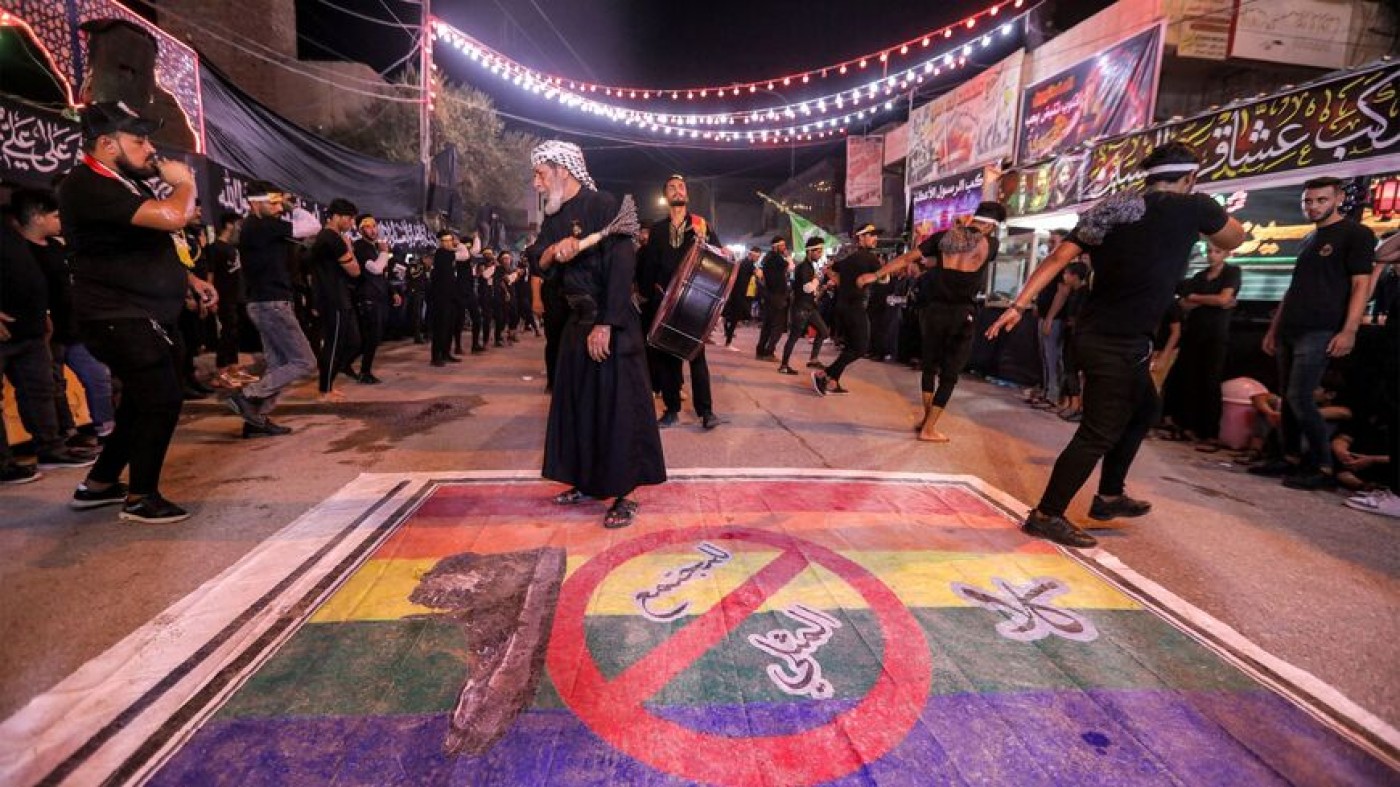
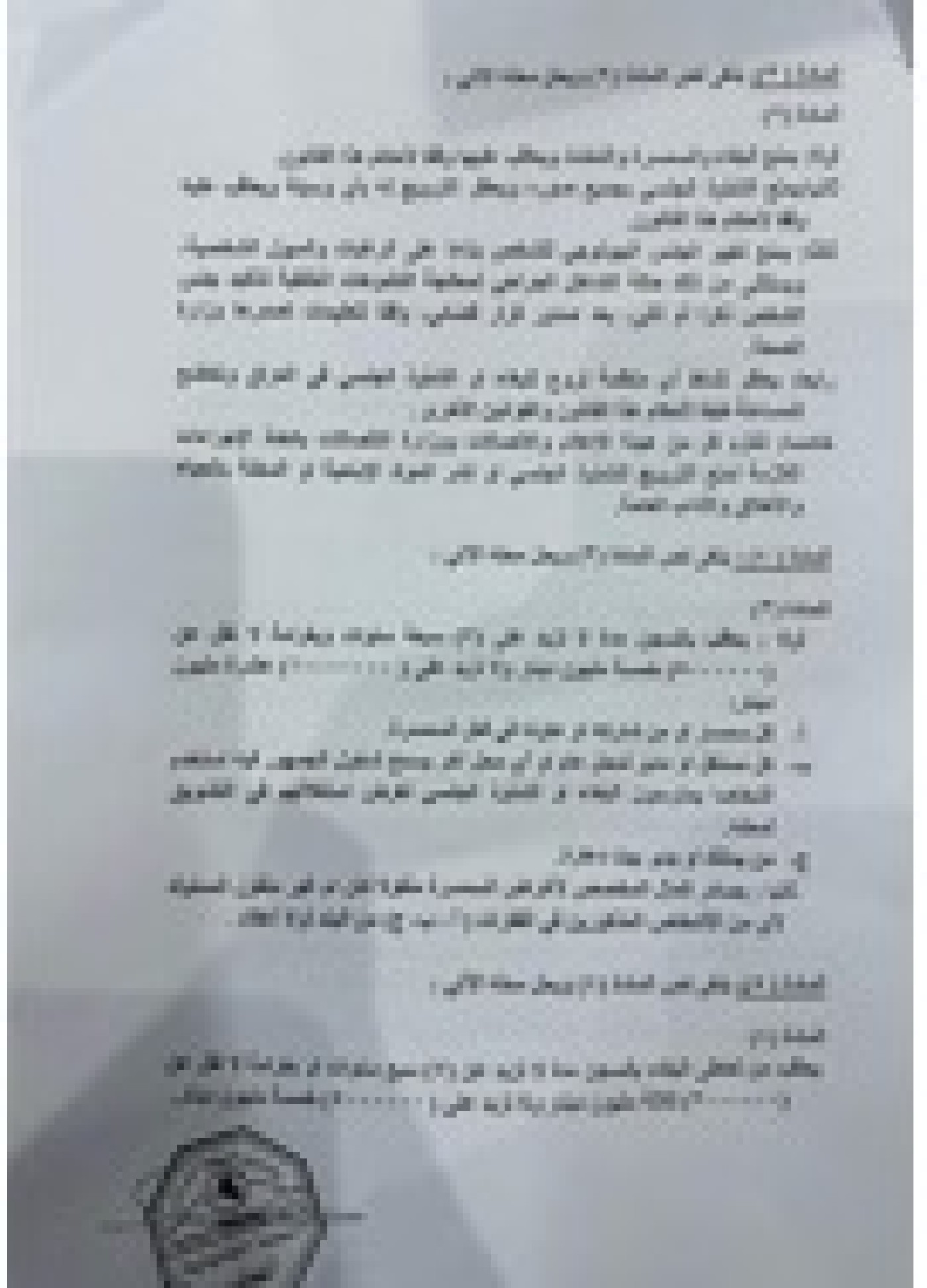
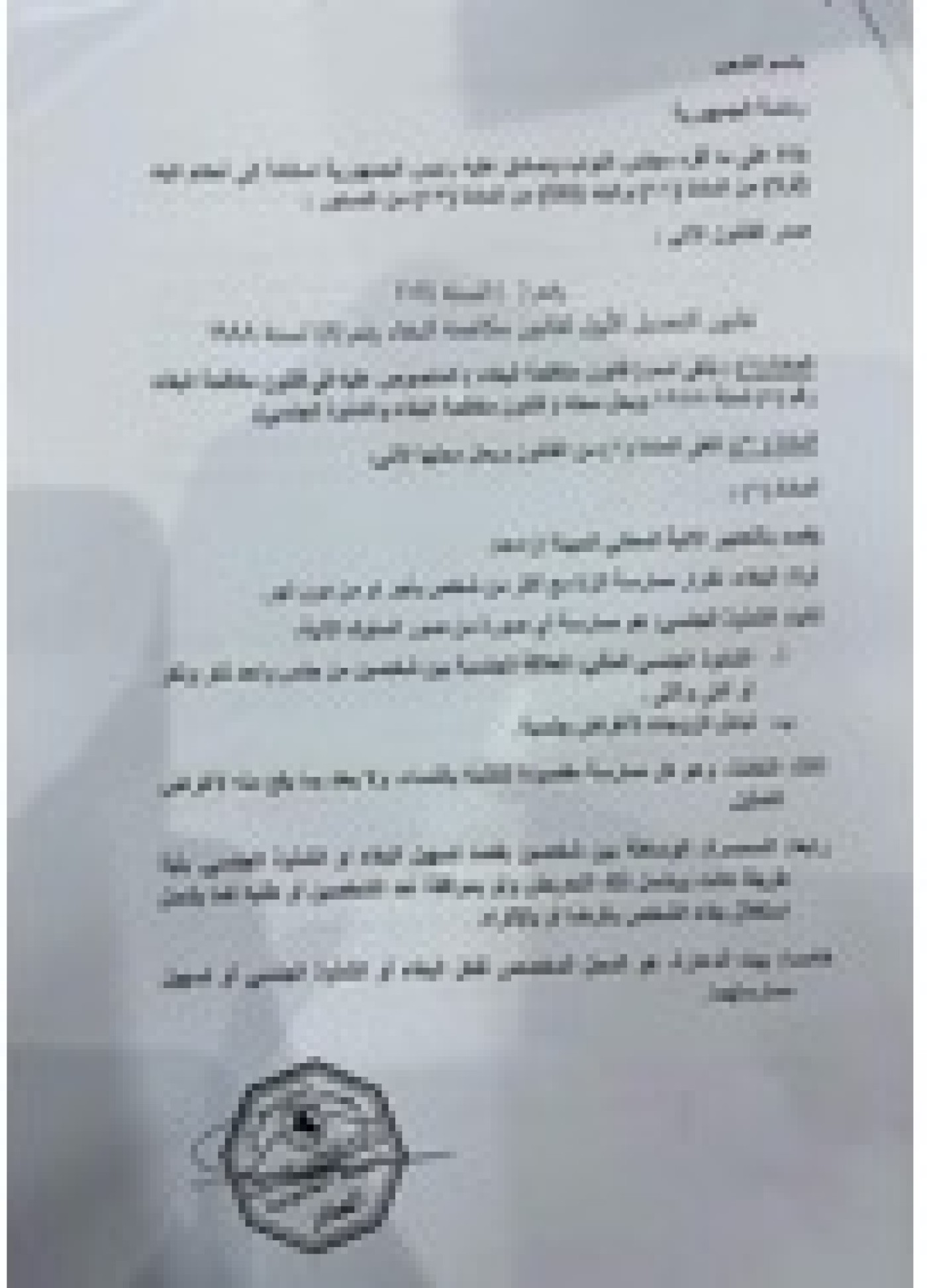
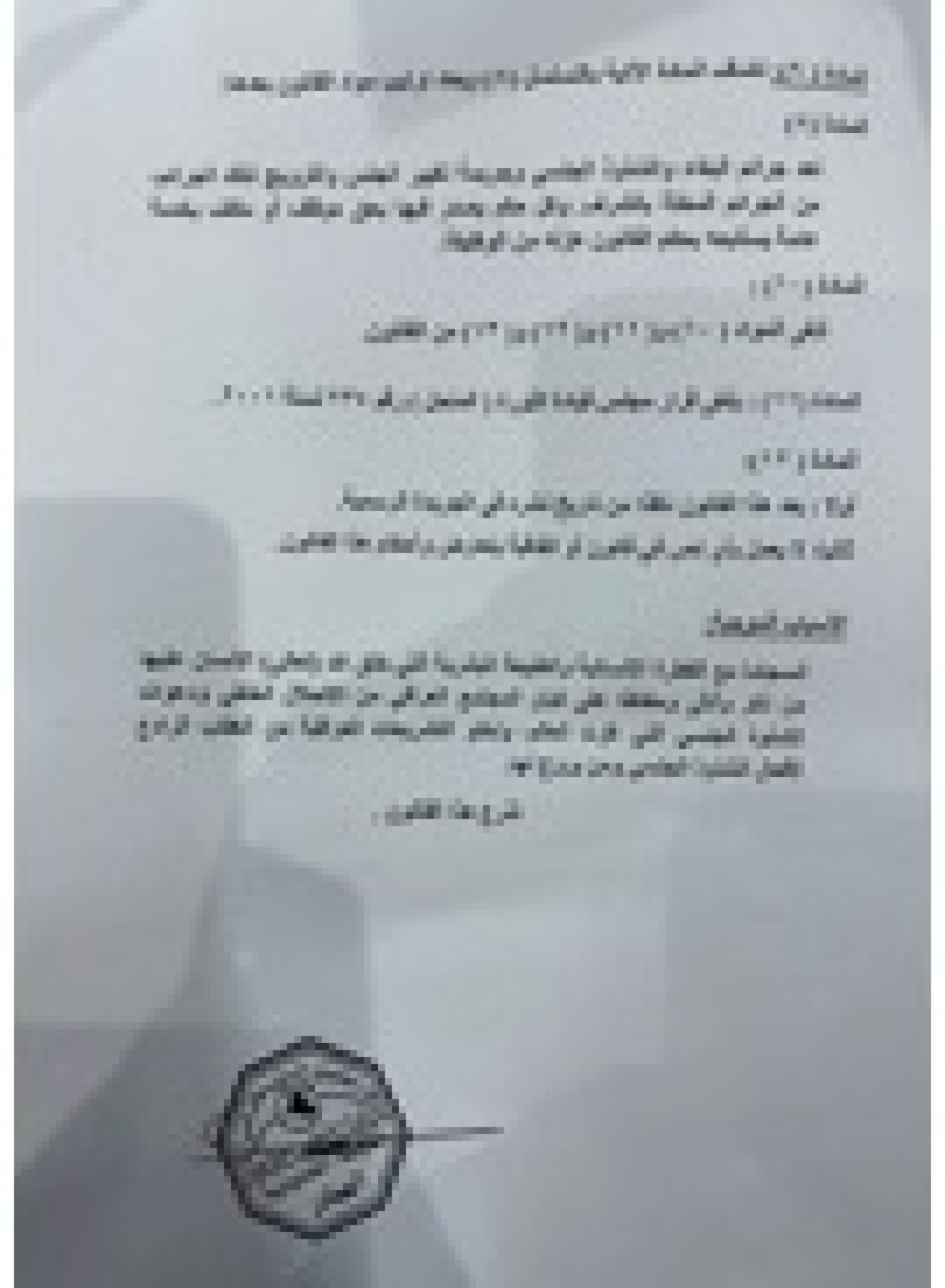
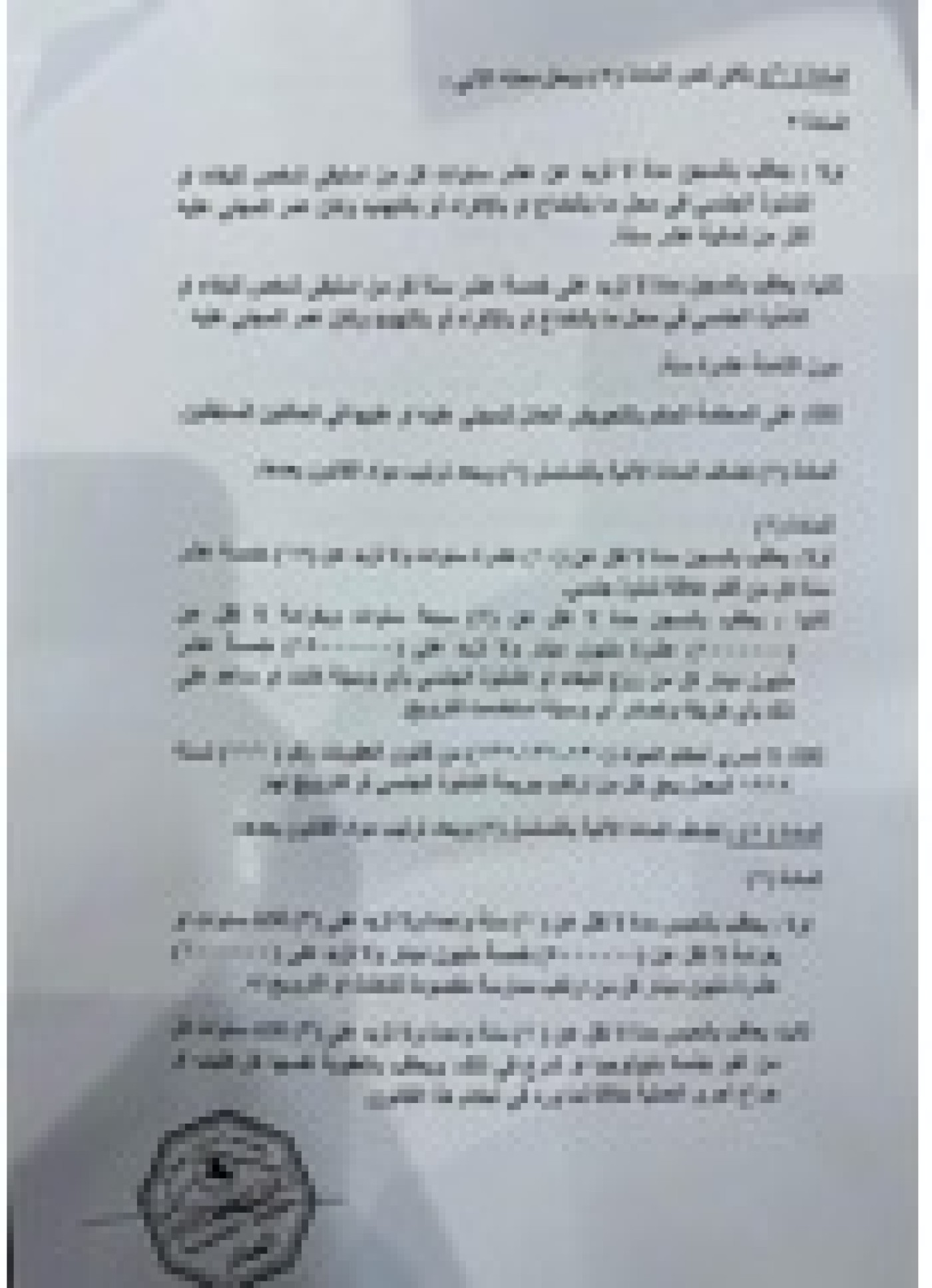
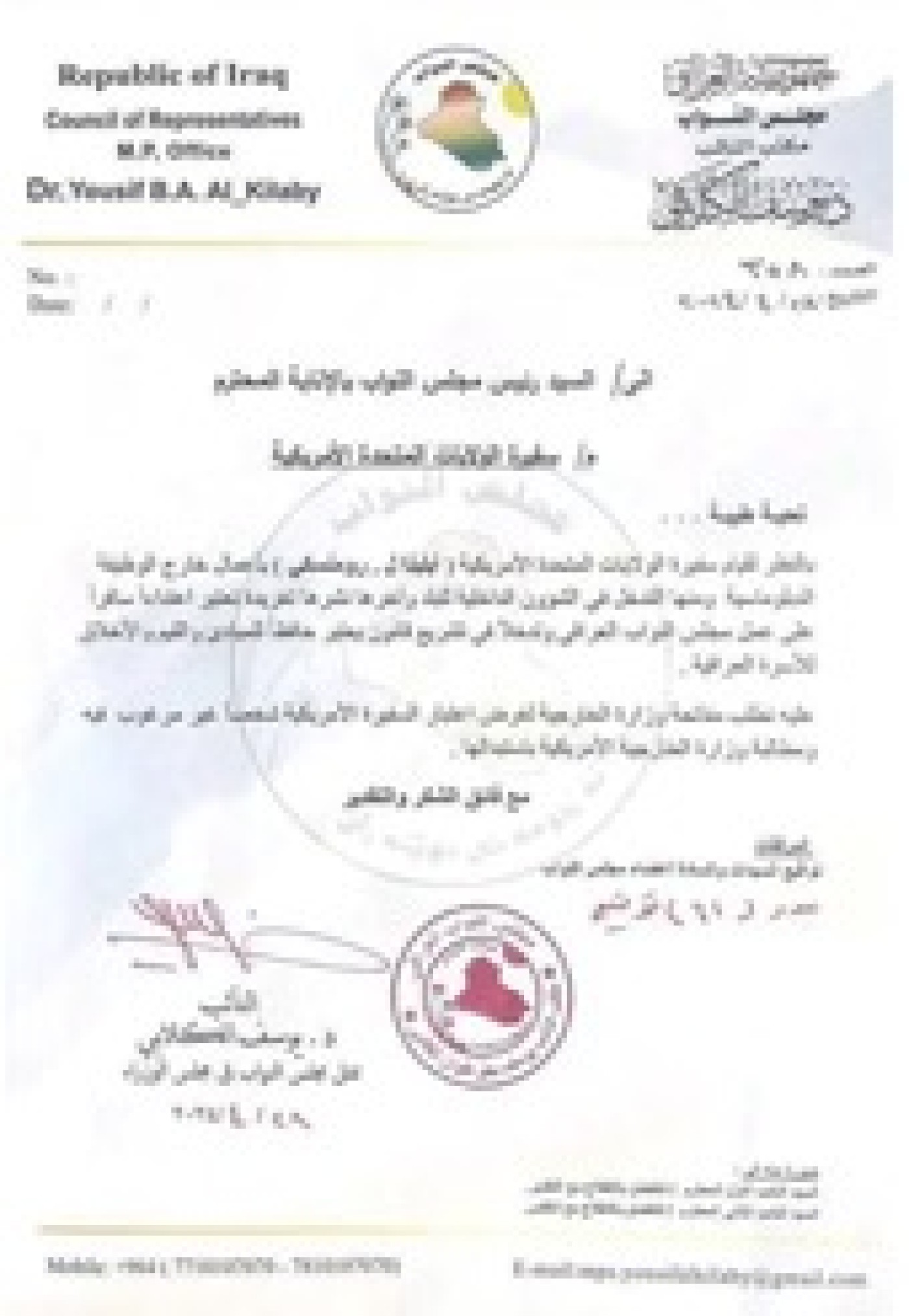
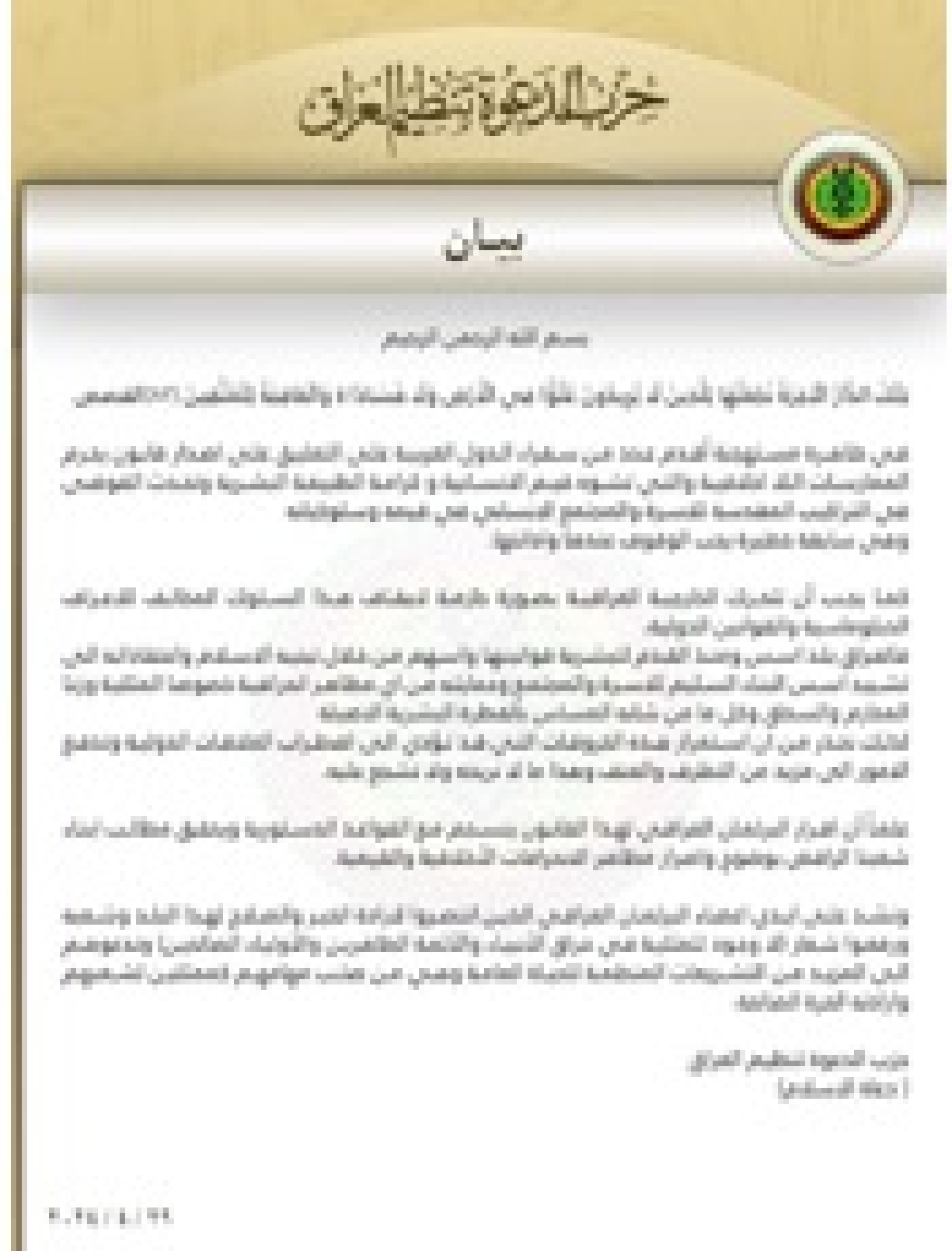
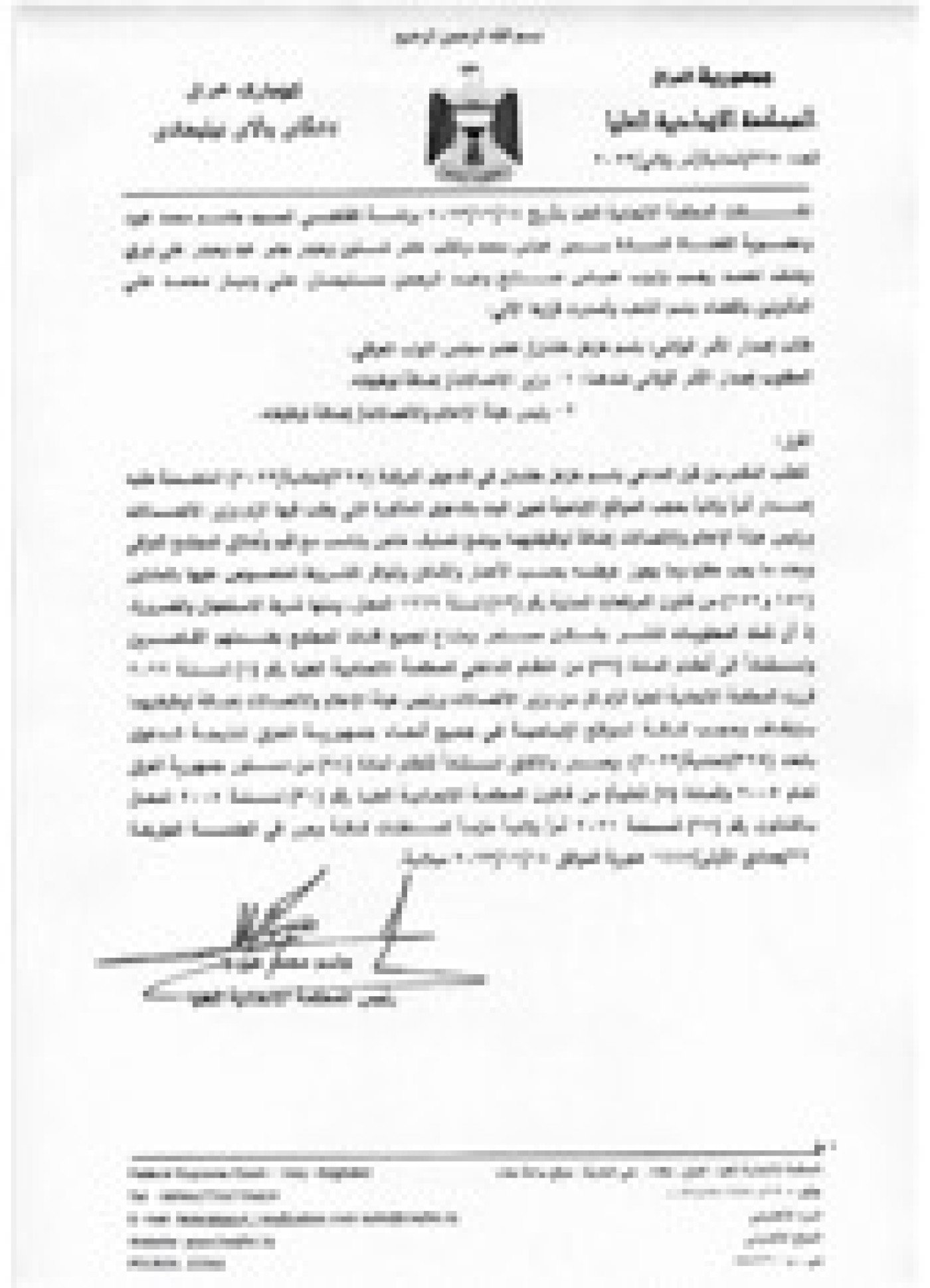
 Facebook
Facebook
 LinkedIn
LinkedIn
 Telegram
Telegram
 X
X


